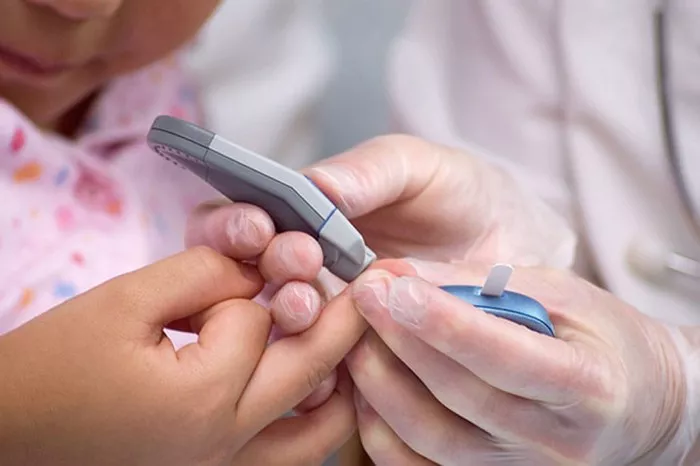Gestational diabetes is a form of diabetes that occurs during pregnancy and affects how your body processes glucose. Managing your diet is crucial for maintaining healthy blood sugar levels and ensuring a healthy pregnancy. One aspect of this is choosing appropriate snacks. This article will explore which snacks are suitable for those with gestational diabetes, providing guidelines, options, and tips to help you make informed choices.
Understanding Gestational Diabetes
1. What Is Gestational Diabetes?
Gestational diabetes is a condition where the body cannot produce enough insulin to manage blood sugar levels effectively during pregnancy. This condition usually develops in the second or third trimester and can lead to complications for both the mother and baby if not properly managed.
2. How Does Gestational Diabetes Affect Blood Sugar Levels?
During pregnancy, the body needs more insulin to handle the increased glucose from food. If the pancreas cannot produce enough insulin, blood sugar levels rise, leading to gestational diabetes. Managing blood sugar through diet, exercise, and, if necessary, medication is essential for controlling this condition.
Importance of Snacking in Gestational Diabetes Management
Snacking can help stabilize blood sugar levels and prevent large fluctuations. Proper snack choices can maintain energy levels, curb hunger, and support overall dietary goals. Here’s why snacking is important:
1. Preventing Blood Sugar Spikes and Dips
Eating small, balanced snacks throughout the day can help prevent large fluctuations in blood sugar levels. Instead of waiting for long periods between meals, having healthy snacks can maintain more consistent blood glucose levels.
2. Supporting Nutritional Needs
Snacks provide an opportunity to include additional nutrients that support both maternal and fetal health. Opting for nutrient-dense snacks can help ensure you and your baby receive essential vitamins and minerals.
3. Managing Hunger and Reducing Overeating
Frequent, balanced snacks can help manage hunger and reduce the likelihood of overeating during meals. This is important for maintaining a healthy weight and blood sugar control.
Guidelines for Healthy Snacking with Gestational Diabetes
Choosing the right snacks involves considering their impact on blood sugar levels, nutritional content, and overall balance. Here are some guidelines to follow:
1. Focus on Balanced Snacks
Balanced snacks include a combination of carbohydrates, proteins, and fats. This balance helps regulate blood sugar levels and provides sustained energy.
2. Choose Low Glycemic Index Foods
Foods with a low glycemic index (GI) are less likely to cause rapid spikes in blood sugar. Opt for low-GI foods such as whole grains, legumes, and non-starchy vegetables.
3. Monitor Portion Sizes
Even healthy snacks can affect blood sugar if eaten in large quantities. Pay attention to portion sizes to avoid consuming too many carbohydrates or calories at once.
4. Include Fiber-Rich Foods
Fiber helps slow down the absorption of sugar into the bloodstream, which can help manage blood sugar levels. Choose snacks that are high in fiber, such as fruits, vegetables, and whole grains.
5. Limit Added Sugars and Refined Carbohydrates
Avoid snacks high in added sugars and refined carbohydrates, such as sugary snacks, white bread, and pastries. These foods can cause rapid increases in blood sugar levels.
Healthy Snack Options for Gestational Diabetes
Here are some healthy snack ideas that are suitable for managing gestational diabetes:
1. Fresh Vegetables and Hummus
Vegetables
Fresh vegetables like carrots, celery, and bell peppers are low in carbohydrates and high in fiber. They make an excellent choice for a snack.
Hummus
Hummus provides protein and healthy fats, which can help balance the carbohydrate content of the vegetables. Opt for hummus made from chickpeas, tahini, olive oil, and lemon juice.
2. Greek Yogurt with Berries
Greek Yogurt
Greek yogurt is high in protein and lower in carbohydrates compared to regular yogurt. Choose plain, unsweetened Greek yogurt to avoid added sugars.
Berries
Berries, such as strawberries, blueberries, and raspberries, are lower in sugar compared to other fruits and high in fiber. Adding a small portion of berries to Greek yogurt provides natural sweetness and additional nutrients.
3. Nuts and Seeds
Nuts
Nuts like almonds, walnuts, and pistachios are high in healthy fats and protein. They can help keep you full and maintain stable blood sugar levels.
Seeds
Chia seeds, flaxseeds, and sunflower seeds are also good options. They provide fiber, protein, and healthy fats, supporting overall blood sugar management.
4. Whole Grain Crackers with Cheese
Whole Grain Crackers
Whole grain crackers are a better option than refined crackers, as they provide more fiber and nutrients. Choose crackers made from whole grains like oats or whole wheat.
Cheese
Cheese offers protein and fat, which can help balance the carbohydrates in the whole grain crackers. Opt for lower-fat varieties if you are watching your fat intake.
5. Apple Slices with Nut Butter
Apple Slices
Apples are a good source of fiber and provide a natural sweetness. Slice them up for a convenient snack.
Nut Butter
Nut butters, such as almond or peanut butter, provide protein and healthy fats. Choose natural nut butters with minimal added sugars or oils.
6. Cottage Cheese with Cucumber Slices
Cottage Cheese
Cottage cheese is high in protein and low in carbohydrates. It makes a satisfying snack that can help manage hunger.
Cucumber Slices
Cucumber slices are low in carbohydrates and high in water content, making them a refreshing and hydrating snack option.
7. Hard-Boiled Eggs
Hard-boiled eggs are a portable and protein-rich snack. They provide essential nutrients and help keep you full between meals.
8. Edamame
Edamame, or young soybeans, are high in protein and fiber. They can be enjoyed steamed or roasted as a nutritious snack.
9. Avocado Slices with Lemon Juice
Avocado
Avocado is rich in healthy fats and fiber. It helps keep you satisfied and supports stable blood sugar levels.
Lemon Juice
Adding a splash of lemon juice to avocado slices enhances flavor without adding extra carbohydrates or sugars.
Sample Snack Combinations for Gestational Diabetes
Creating balanced snack combinations can help you meet your nutritional needs while managing blood sugar levels. Here are a few examples:
1. Greek Yogurt with a Small Handful of Almonds and Blueberries
This combination provides protein from the yogurt, healthy fats from the almonds, and fiber from the blueberries.
2. Whole Grain Crackers with Sliced Avocado and a Small Piece of Cheese
Whole grain crackers offer fiber, while avocado and cheese provide healthy fats and protein.
3. Fresh Veggies with Hummus and a Small Apple
Veggies and hummus offer fiber and protein, while the apple provides a small amount of carbohydrates and natural sweetness.
Tips for Successful Snacking with Gestational Diabetes
1. Plan Ahead
Prepare snacks in advance to ensure you have healthy options readily available. Keep portioned snacks in your bag or refrigerator for convenience.
2. Read Labels Carefully
When purchasing pre-packaged snacks, read labels to check for added sugars, refined carbohydrates, and overall nutritional content. Aim for snacks with minimal added sugars and high fiber content.
3. Listen to Your Body
Pay attention to how your body responds to different snacks. Monitor your blood sugar levels and adjust your snack choices based on what works best for you.
4. Stay Hydrated
Drinking plenty of water is essential for overall health and blood sugar management. Pair your snacks with water to stay hydrated and support digestion.
5. Consult with a Dietitian
A registered dietitian can provide personalized advice and help you create a meal plan that fits your needs. They can offer guidance on portion sizes, food choices, and managing blood sugar levels.
See also: What is a Normal Fasting Blood Sugar Level During Pregnancy?
Conclusion
Managing gestational diabetes involves making careful food choices to maintain stable blood sugar levels. Snacking plays a crucial role in this process, helping to prevent blood sugar spikes and dips while supporting overall nutritional needs. By choosing balanced, nutrient-dense snacks and following the guidelines provided, you can effectively manage gestational diabetes and support a healthy pregnancy.
Remember, individual needs may vary, and it’s important to work with your healthcare provider or a registered dietitian to develop a personalized snacking plan. With proper planning and informed choices, you can successfully navigate the challenges of gestational diabetes and enjoy a healthy, balanced diet.
Related topics:
What Is Too Much Sugar During Pregnancy?

























